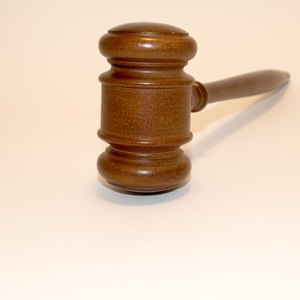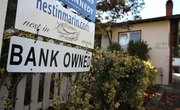
Pennsylvania is one of the states that auction off property deeds when back taxes are left unpaid. Because the deed itself is sold at auction, investors take full possession of the property when they're the winning bidder. In Pennsylvania, auction bids start at the total amount due, which includes all back taxes, fees, advertising, mailing and administrative costs.
Property Lists
The list of properties available at the tax deed sales is published in local newspapers several weeks before the sale. Several Pennsylvania counties also publish the list on their local sheriff's office website. Not all properties shown on the list will be available at the tax sale, however, because the sale of a property can be stayed by a court order or by the owner paying all amounts due.
Monthly Sales
Most large counties in Pennsylvania have tax deed sales monthly, and bidders must be present in person at each sale where they intend to buy property.
10 Percent Deposit
When attending a tax deed sale, bidders must bring 10 percent of what they expect to pay for all properties they have winning bids on. The sheriff's office will not allow bidders to go to the bank for additional funds in the middle of the sale. Personal or business checks and credit cards are not accepted forms of payment--only cash, money orders or bank certified checks can be used to pay the deposit.
Balance Payment
After the tax sale, winning bidders must pay the balance due for all properties they won at auction by the Friday of the sale week. Balance payments must be made by 10 a.m. to the sheriff's office; otherwise, the 10 percent deposit will be forfeited and the tax deed will be put up for sale again.
Redemption Period
According to the Larry B. Loftis book "Profit By Investing in Real Estate Tax Liens," some counties in Pennsylvania have a one-year redemption period but only if the property was occupied in the 90 days preceeding the tax sale. In these cases, the owner can redeem the property by paying the investor's purchase price and 10 percent interest.
References
- "Profit by Investing in Real Estate Tax Liens"; Larry B. Loftis; 2007
Writer Bio
Kathy Burns-Millyard has been a professional writer since 1997. Originally specializing in business, technology, environment and health topics, Burns now focuses on home, garden and hobby interest articles. Her garden work has appeared on GardenGuides.com and other publications. She enjoys practicing Permaculture in her home garden near Tucson, Ariz.

